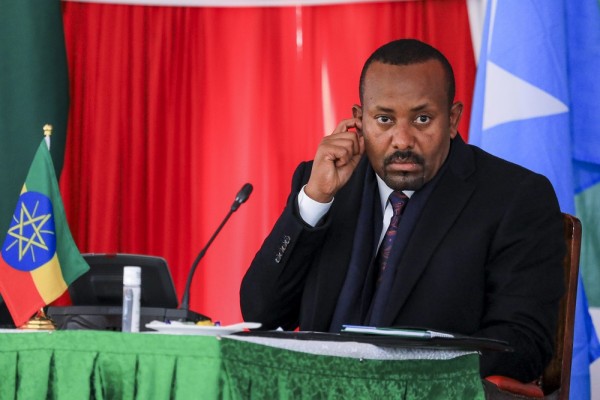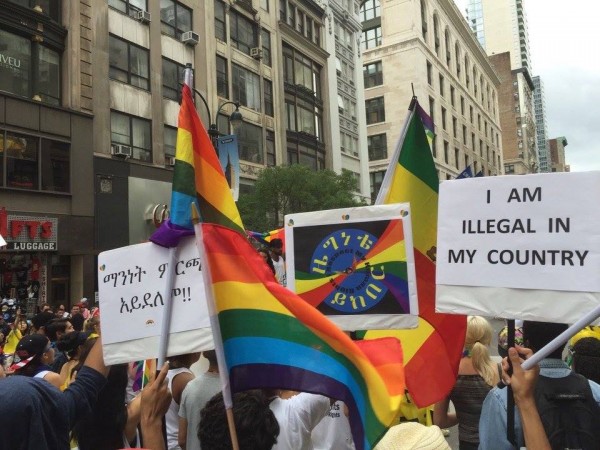Prime Minister Hailemariam Desalegn
c/o H.E. Minelik Alemu Getahun
Embassy of the Federal Democratic Republic of Ethiopia
Rue de Moillebeau 56
Case postale 338
1211 Genève 19, Switzerland
Tel. +41 22- 919 70 10
Fax +41 22 – 919 70 29
Dear Acting Prime Minister Hailemariam Desalegen,
It has been one year to this day since Ethiopian journalist Eskinder Nega was jailed. It is one year too long.
On behalf of the International Press Institute (IPI) I am writing today on the anniversary of his imprisonment to ask that your government free him and the other journalists who have been jailed under the Anti-Terrorism Proclamation of 2009.
It is a new year for Ethiopia. With the passing of Prime Minister Meles Zenawi, it is an opportunity to continue with the positive reforms his government put in place, while reforming those policies that have little purpose. IPI believes the recent trend of jailing journalists serves only to give the impression that the Ethiopian government is secretive and intolerant of criticism.
Just a few days before Nega was arrested on Sep. 14 last year, Swedish journalists Martin Schibbye and Johan Persson were formally charged with terrorism-related crimes, as were Ethiopian journalists Woubshet Taye and Reyot Alemu. Schibbye and Persson had been arrested in July as they travelled with insurgents in the Ogaden region. Taye and Alemu had been detained a few days earlier and were accused of planning to sabotage communication channels and of recruiting people to destabilize the country, reports said.
Nega was critical of their arrests, and the arrests of opposition figures.
He told IPI that Alemu and Taye were being jailed not because they were terrorists, but as part of the “calculated cultivation of fear” in an environment where “the Arab spring [is] dominating the headlines.” He published an article that looked forward to a future of “freedom,” and that criticized Ethiopia’s use of the anti-terror law to jail journalists and opponents.
Then Nega himself was detained. In July 2012, he was sentenced to 18 years in prison for participating in a terrorist organization and conspiring to commit an act of terrorism.
Taye and Alemu are now serving 14-year prison terms on terrorism and money laundering convictions. Rights groups have said that prosecutors used articles they had written or even received as evidence against them, which seems to indicate that they were jailed not for terrorism but for practicing their profession.
Swedish journalists Martin Schibbye and Johan Persson were pardoned last week. This was a move that we warmly welcomed. But the treatment of Ethiopian journalists and news media is still of grave concern.
Taye and Alemu’s colleagues at the Awramba Times and Feteh newspapers have repeatedly been targeted. For instance, Awramba Times editor Dawit Kabede, whom the Committee to Protect Journalists has given an International Press Freedom Award, had to leave Ethiopia in 2011 after learning that he was to be arrested.
More recently, Feteh has been blocked by the authorities and its editor, Temesgen Desalegn, was detained and charged with inciting the public to overthrow the constitutional order, defaming the state, and spreading false rumours after he published articles about Meles Zenawi’s health. As it turns out, Feteh was right to raise questions: Soon after, the government officially announced that Zenawi had died. The charges against Temesgen, happily, were dropped shortly afterwards.
Ethiopia should cease the harassment of its critical journalists, and free Eskinder Nega and his colleagues who are still behind bars. To keep them in prison gives the impression that the government has no regard for press freedom. To set them free would be a first step toward bringing Ethiopia’s record on press freedom in line with the country’s much-lauded development record.
Sincerely,
Alison Bethel McKenzie
Executive Director
International Press Institute


